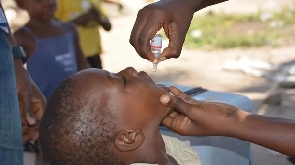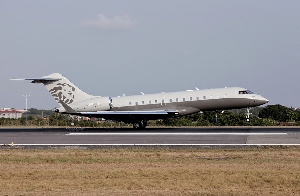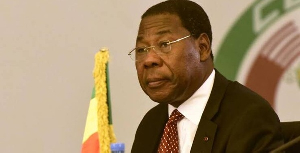A policy research and advocacy non-governmental organisation, SEND Ghana, has warned of a possible outbreak of childhood diseases in the country if the authorities do not take urgent steps at addressing the current shortage of childhood vaccines.
In a statement signed by its Deputy Country Director, Emmanuel Ayifah, the organization stated that the current situation is “hindering the country’s goal of attaining Universal Health Coverage and Sustainable Development Goals more broadly.”
It has, therefore, called for urgent steps to be taken to ensure that this situation is redressed so as to take away the tag over Ghana as a ‘stubborn child’ among global immunization bodies.
“For about a month now, health authorities have been paying lip service to resolving the shortage. It is reported that 10 out of the 16 administrative regions in Ghana are currently battling shortages of vaccines and are now turning nursing mothers away. This is hindering the country’s goal of attaining Universal Health Coverage and Sustainable Development Goals more broadly.
“The government of Ghana over the years have not fulfilled its co-financing obligation with the Global Alliance for Vaccines and Immunization (GAVI). Ghana is now considered a ‘stubborn child’ among global immunization bodies. While we recognize the current economic crisis in the country, important needs such as vaccination for children cannot be compromised,” the statement said.
The SEND Ghana boss further suggested that the government uses funds from the management of COVID-19 to remedy this situation, while urging that this is done urgently.
They also commended parliament for taking bold steps at ensuring that the government pays attention to this.
“We recommend that government retrieves monies used to purchase Covid19 vaccines that were not delivered as cited in the Auditor General’s 2022 report to purchase vaccines for children.
“We commend the Health Committee of Parliament for inviting the sector minister, Kwaku Agyeman-Manu, to respond to questions regarding the shortage of the vaccine. We further appeal to parliament to use its powers to continue to sustain the pressure on the government until the vaccines are made available to all health centres across Ghana.
“We hope the government will speed up processes leading to the acquisition of vaccines to protect and guarantee the safety and well-being of children,” the statement added.
Earlier, the Ghana Health Service said a shortage of routine vaccines for children blamed for a measles outbreak that infected 120 would be resolved within weeks.
The authorities added that the shortage of vaccines against polio, hepatitis B, and measles, was caused by the depreciation of Ghana's currency, with nursing mothers complaining for months of the shortage of vaccines meant for babies from birth to at least 18 months.
The situation became worse in February after major health facilities in 10 out of the 16 administrative regions of Ghana kept turning nursing mothers away due to erratic supply.
Watch the new episode of The Lowdown on GhanaWeb TV below:
AE/BB
Health News of Thursday, 2 March 2023
Source: www.ghanaweb.com













